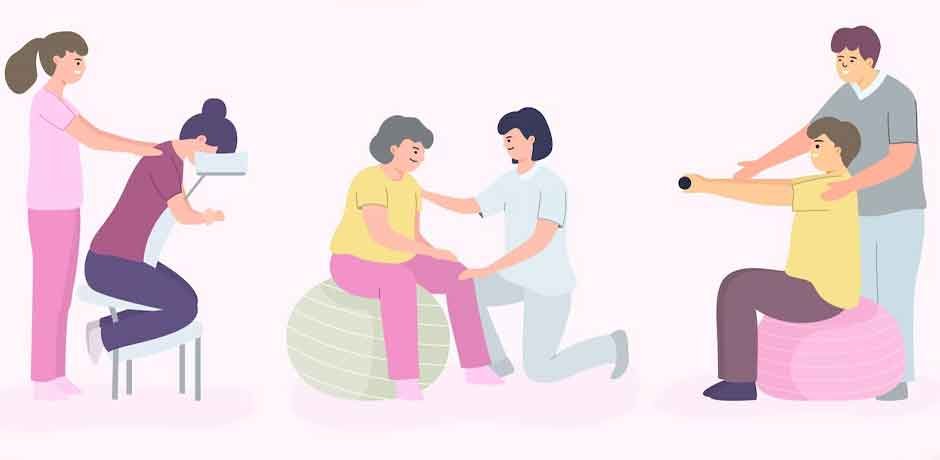Physiotherapy, a specialized field of healthcare, focuses on using physical techniques to manage pain and promote recovery from injuries or conditions that affect movement. With its evidence-based approach and personalized care, physiotherapy has gained recognition as a crucial component of pain management and recovery programs. Whether it’s through targeted exercises, manual therapy, or other modalities, physiotherapy aims to restore and optimize movement, enhance functionality, and improve quality of life.
In this article, we discuss the benefits of Movement 101 Chatswood physiotherapy for pain management and recovery. Take a look.
Reducing Pain
One of the primary goals of physiotherapy is to reduce pain. Physiotherapists use various techniques to alleviate pain caused by injuries, surgeries, chronic conditions, or other underlying health issues. They may use manual therapy techniques, such as joint mobilization or soft tissue mobilization, to relieve pain and improve joint mobility. They also use modalities such as heat or cold therapy, electrical stimulation, ultrasound, or acupuncture to help manage pain.
Additionally, physiotherapists may prescribe specific exercises or stretches that target the affected area. This can help reduce pain by improving muscle strength and flexibility, promoting circulation, and reducing inflammation.
Improving Mobility
Physiotherapy is also highly effective in improving mobility, which is crucial for individuals recovering from injuries or surgeries or those with chronic conditions that affect their ability to move. Physiotherapists employ various techniques to improve joint range of motion, muscle strength, and flexibility. They may provide specific exercises or stretches to target the affected muscles or joints and use assistive devices, such as crutches or braces, to support individuals in regaining their mobility.
By improving mobility, physiotherapy can help patients regain their independence and ability to perform daily activities, such as walking, standing, and lifting.
Promoting Healing
Physiotherapy plays a significant role in promoting healing, especially for individuals recovering from injuries or surgeries. Physiotherapists use techniques that stimulate the body’s natural healing processes, such as promoting blood flow to the injured area, reducing inflammation, and encouraging tissue repair. They may also provide advice on proper nutrition, hydration, and lifestyle modifications that can aid in the healing process.
Additionally, physiotherapists may use techniques such as massage, lymphatic drainage, or myofascial release to promote healing and reduce scar tissue formation. By promoting healing, physiotherapy can help individuals recover faster and more effectively from injuries and reduce the risk of complications or long-term disabilities.
Enhancing Overall Well-Being
Physiotherapy is not only focused on physical healing but also on enhancing overall well-being. Pain and physical limitations can take a toll on one’s mental and emotional health, and physiotherapy aims to address these aspects as well. Physiotherapists often provide education and counseling on pain management strategies, stress management techniques, and coping mechanisms to improve patients’ mental well-being.
Their treatment plans may also incorporate relaxation techniques, breathing exercises, or mindfulness techniques to help reduce anxiety, depression, and other mental health symptoms. By enhancing overall well-being, physiotherapy can improve one’s quality of life and improve their ability to cope with pain and physical challenges.
Preventing Recurrence of Pain or Injuries
Physiotherapists not only treat the immediate symptoms but also address the underlying causes of pain or injuries. They assess and identify any faulty movement patterns, muscle imbalances, or postural issues that may contribute to the pain or injury and then develop tailored exercise programs to address these issues. This way, physiotherapy can help patients improve their biomechanics, posture, and movement patterns, which can reduce the risk of recurrence of pain or injuries in the future.
Physiotherapists may also provide education on ergonomics, proper body mechanics, and lifestyle modifications to prevent further strain on the body and reduce the risk of developing chronic pain conditions.
Collaborative Approach
Physiotherapy also takes a collaborative approach to pain management and recovery. Physiotherapists often work as part of a multidisciplinary healthcare team that includes physicians, surgeons, occupational therapists, chiropractors, and other healthcare professionals. This collaborative approach allows for a comprehensive approach to pain management and recovery, where different healthcare professionals work together to provide the best possible care for the patient.
Physiotherapists collaborate with other team members to ensure that the patient receives the most appropriate care. They may also provide recommendations for other interventions or referrals to other specialists if needed.
Physiotherapy offers numerous benefits for pain management and recovery. With its non-invasive, cost-effective, and holistic approach, physiotherapy is a valuable healthcare option for individuals dealing with acute or chronic pain, recovering from injuries or surgeries, or seeking to improve their physical function and well-being. Consult with a qualified physiotherapist to explore the potential benefits of physiotherapy in your pain management and recovery journey.






